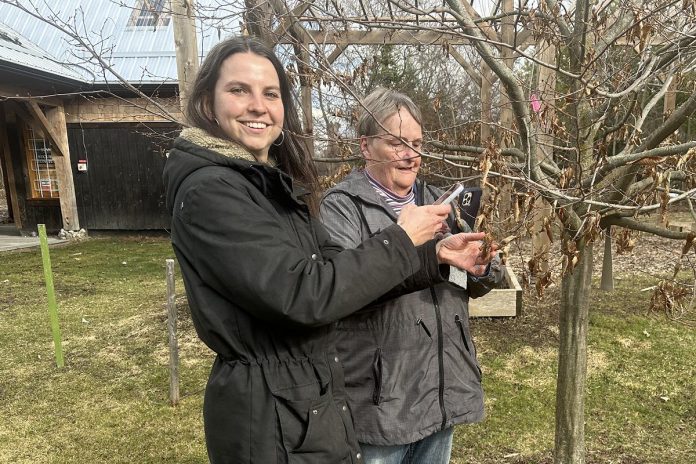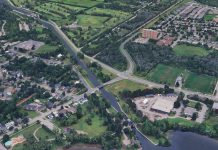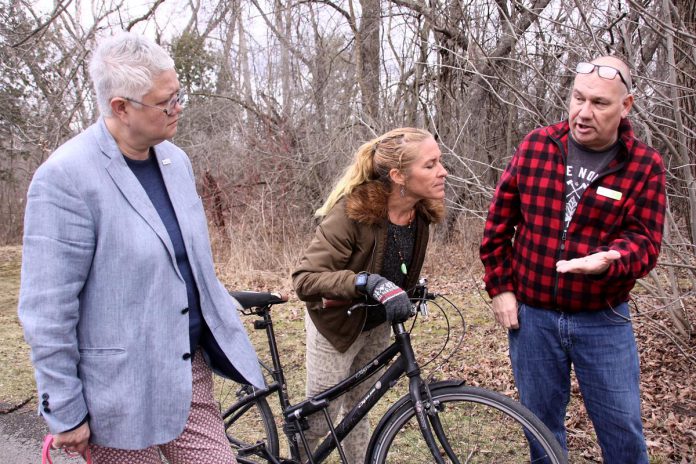
This spring, the City of Peterborough is encouraging residents and visitors to get outside and discover the abundance of biodiversity that exists within their own backyards through participation in the four-day City Nature Challenge.
On Friday, April 26th and Saturday, April 27th, the challenge will launch with a community bio-blitz at Peterborough GreenUP’s Ecology Park and neighbouring areas including Beavermead Park and Farmcrest Park. Both days between 11 a.m. and 3 p.m., volunteers from the Peterborough Field Naturalists will be on-site to share knowledge, help with species identification, and host educational walks led by local experts.
Throughout the weekend and until Monday, April 29th, all data collected within the city’s boundaries and uploaded to the “City Nature Challenge 2024: Peterborough” project on the iNaturalist app or website will count towards Peterborough’s official submission to the competition.
“This place is a special place of biodiversity with city parks that have such natural trails, waterways, wetlands, and all the species and habitats that go along with it,” says city councillor Joy Lachica, who assures she is maintaining the role of environmental liaison under Peterborough’s new portfolio chair by-law.
“It’s so wonderful that the City Nature Challenge is family-centric and something that adults who are children at heart and their children can participate in together.”
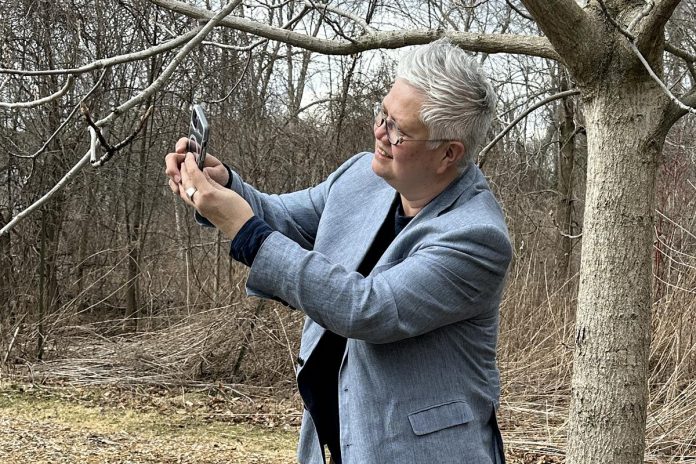
In its second year of participation, the City of Peterborough is hopeful to surpass last year’s recorded observations. Including just one rainy day with the Peterborough Field Naturalist on-site at Jackson’s Park, the local challenge resulted in 37 participants, 574 observations, and 298 species.
Globally, the challenge featured over 1.8 million observations (almost 75,000 of which were in Canada) and more than 57,000 species.
“You don’t have to be an expert to be a citizen scientist, just an enthusiastic person who wants to be outdoors and learn about what’s around you,” says Kim Zippel, former city councillor and event organizer with the Peterborough Field Naturalists.
iNaturalist does exactly what its name suggests, turning anyone into a naturalist.
By simply taking photos of the sighting and detailing as much as possible about the observation — documenting the size, colour, and surrounding ecology — participants can immediately upload data into the project through the mobile app or add it later through the iNaturalist website.
The species data-sharing platform then makes it easy to identify anything from a Carolinian tree to lichen, cardinals, mammal scat, or even a stump that’s been chewed by a beaver — all of which and more can be found around Ecology Park.
VIDEO: How to Make an Observation on iNaturalist
Through iNaturalist, participants can also browse other local findings, learn more about each of their observations, and connect with a community of citizen scientists.
“If we have an entire city going out and looking in every nook and cranny across that geographical area, all of a sudden, we have so much data,” says Zippel. “There’s no limitation to the capacity of the community. That’s why citizen science is so important.”
After the four-day bio-blitz, all observations added to the City Nature Challenge will be verified through the “Research Grade” identification on iNaturalist through confirmation by at least two other users in the app. Final counts and totals for participants, species, and observations will be announced by City Nature Challenge in May 2024.
Even well beyond the City Nature Challenge, however, the collected data helps local researchers understand patterns and changes in species populations and behaviours over time. Documentation of endangered or at-risk species sightings, tracking migratory patterns based on temperatures and the movement of invasive species can impact decisions when it comes to city planning and species protection efforts.
“If we can identify where species are, we know how best to interact when we are impacting the land,” says Zippel.
“It contributes to a wider picture of what’s really happening and what we need to be doing in terms of climate change adaptation and mitigation, because we certainly know other living things are impacted as well as humans,” adds Lachica. “It can help us really protect, preserve, sustain, and support species in our own backyards and in our neighbourhoods.”
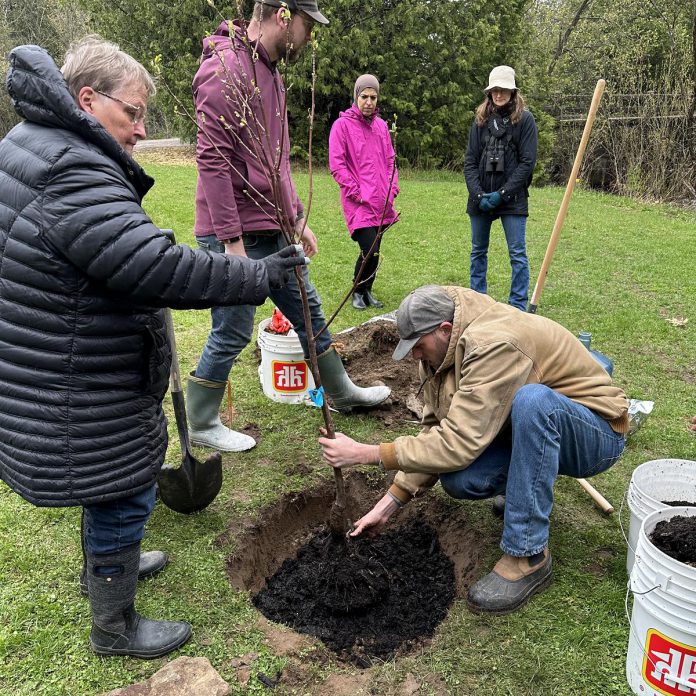
Participants can learn even more about how ecosystems within Peterborough have played an effect on each other over time by visiting the pavilion at Ecology Park over the two-day gathering. Opening with a welcoming from Lachica and Mayor Jeff Leal, the Peterborough Field Naturalists will be on-site to assist participants with species identification and using iNaturalist as they make their observations, alongside other immersive activities.
On Friday, April 26th at 11:30 a.m., Carlotta James of Three Sisters Natural Landscapes will be leading a family-friendly walk all about pollinators, highlighting the city’s role as a Bee City while, at 1 p.m., the Otonabee Region Conservation Authority will share knowledge of the Meade Creek history and ecology.
On Saturday, April 27th, the 11:30 a.m. tree walk will be led by Vern Bastable, director of GreenUP Ecology Park and landscape programs, while the 1 p.m. walk will be led by naturalist and author Drew Monkman.
“Most cities don’t have very large green spaces right in the middle that people can access,” says Bastable. “Ecology Park is a unique spot in that there’s also some interesting plants that have been planted over the years. It’s a spot where you can see some species that you might not see in other places.”
Since the City Nature Challenge is all about friendly competition, the City of Peterborough will also be hosting a Mayors’ Challenge, inviting the City of Kingston and its mayor Bryan Paterson to participate in some good-natured rivalry.
While the goal is to surpass last year’s statistics, Zippel notes it will also be interesting to analyze this year’s findings in comparison to last year’s, both because of the change of location for the bio-blitz and this year’s early spring.
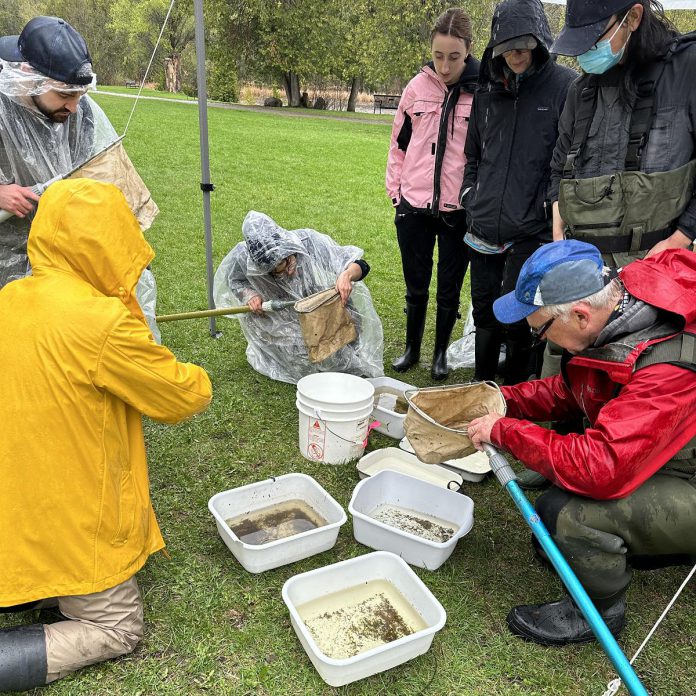
“I think we’re going to see bird species that we didn’t see last year,” Zippel says. “We might be able to identify more easily some tree and plant species because they might be already budding.”
The findings could also be largely weather dependent and, with the fluctuating temperatures this year, part of the fun is seeing what the landscapes will bring out, especially when you go looking to find the things you might not typically pay attention to.
“When you plan an outdoor event based on nature, you never know what you’re going to get,” Zippel notes.
Visit peterborough.ca/CNC for more information on Peterborough’s City Nature Challenge.
